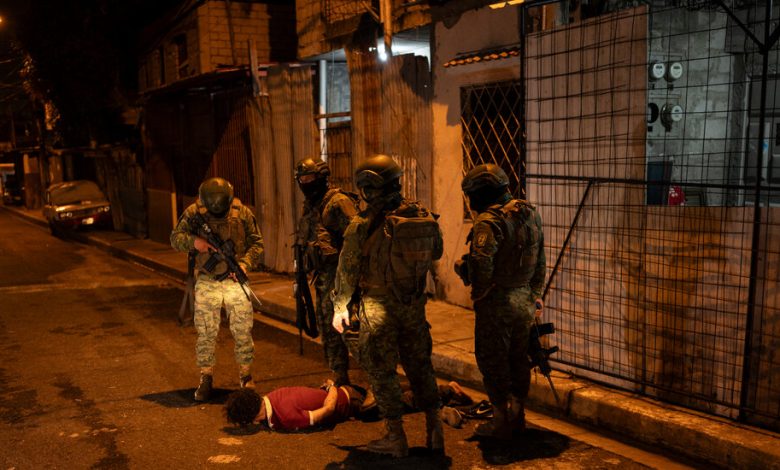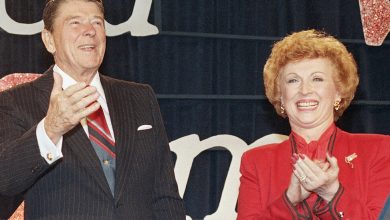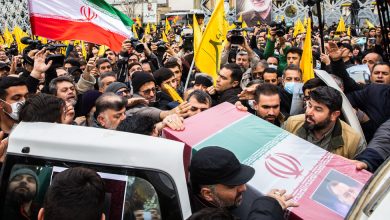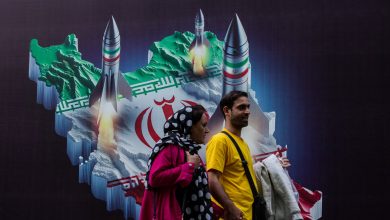Ecuador’s Attorney General Took on Drug Gangs. Then Chaos Broke Out.

Just weeks before Ecuador descended into chaos, with prison riots, two escaped criminal kingpins and the brief siege of a television station, the country’s top prosecutor launched a major operation aimed at rooting out narco-corruption at the highest levels of government.
The investigation, called “Caso Metastasis,” led to raids across Ecuador and more than 30 arrests.
Among those charged were judges accused of granting gang leaders favorable rulings, police officials who were said to have altered evidence and delivered weapons to prisons, and the former director of the prison authority himself, who was accused of giving special treatment to a powerful drug trafficker.
They had been implicated by text chats and call logs retrieved from cellphones belonging to the drug trafficker, who was murdered while imprisoned.
When the attorney general, Diana Salazar, announced the charges last month, she said the investigation had revealed the spread of criminal groups through Ecuador’s institutions. She also warned of a possible “escalation in violence” in the days to come, and said that the executive branch had been put on alert.
This week, her prediction came true.
Interviews with security experts and intelligence sources reveal what might have set off the violence in Ecuador this week, which was so intense that it prompted the president, Daniel Noboa, to declare war on the gangs and impose a state of emergency.
According to the interviews, the attorney general’s investigation played a pivotal role.
“Metastasis is where everything starts,” said Mario Pazmiño, a retired colonel and former director of intelligence for the Ecuadorean Army who is an independent analyst on security matters.
The raids put pressure on Mr. Noboa, who took office in November and had promised to crack down on gangs and clean up the prison system, to take concrete steps, Mr. Pazmiño said.
The president assured that major changes were coming. Though he did not publicly say what they were, officials said the changes included transferring several powerful gang leaders to a maximum-security facility known as La Roca, or The Rock, in Guayaquil, a major coastal city.

In a photo released by the presidential office, President Daniel Noboa speaking on Friday in Quito, Ecuador, about detailed plans for two new high-security prisons.Credit…Carlos Silva/Ecuador Presidency, via Reuters
Gang leaders learned of the plan before the transfer could take place, however, most likely through a government leak, the officials said. And on Sunday, Adolfo Macías — who runs a gang called the Choneros and is widely considered the most powerful gang leader in Ecuador — went missing from his cell.
As inmates clashed with guards at prisons across the country, another gang leader, Fabricio Colón Pico, who heads Los Lobos, escaped on early Tuesday from a prison near the city of Riobamba.
Experts said the gang leaders wanted to avoid La Roca because security would be tighter and they were likely to lose access toelectronics like cellphones. The leaders also feared that if they were housed with their rivals in La Roca, they might be killed.
“Every one of their lives would be in danger,” Mr. Pazmiño said. “That was the breaking point.”
In response to the planned transfer, experts say leaders probably ordered gang members — from within the prisons that serve as their command centers — to fight back.
And so, on Tuesday, Ecuadoreans experienced violence like nothing they had seen in years — even as intergang warfare has roiled the once-peaceful country. In several prisons, inmates took guards and staff members hostage. One social media video showed guards heldat knife-point.
In cities and towns, police officers were kidnapped, cars were set on fire and explosives were detonated.
Guayaquil experienced the most violence, with armed men descending not only on the TC Televisión network’s studio during a broadcast, but also on several hospitals and opening fire near at least one school.

Cameras at TC Televisión’s station in Guayaquil, Ecuador, caught gunmen taking over the studio during a live broadcast before being arrested by the police.
In the mayhem, at least 11 people died, the authorities said, most of them in Guayaquil, and nearly 200 prison staff members were taken hostage.
The attorney general’s revelations — and Mr. Noboa’s subsequent plan to transfer gang leaders — had provoked intense anger.
“The Metastasis operation is like kicking the hornet’s nest,” said Gustavo Flores-Macías, a professor of government and public policy at Cornell University who specializes in Latin America.
Before the operation, gang leaders appeared to have reached a state of “equilibrium,” he said, in which they felt they could operate their lucrative criminal rings, even from behind bars, with the cooperation of the authorities.
“Let’s say the gangs are operating under a level of impunity, and let’s say they are fairly happy with it,” Mr. Flores-Macías said. “What Metastasis is doing is it’s disrupting this equilibrium that exists that allows them to do business as usual. So there’s a reaction in this criminal underworld, and it takes the shape of these fairly violent, spectacular actions.”
Ms. Salazar’s office responded saying they were not granting interviews because of the ongoing security situation.
The violence set off by the gangs was met with force. On Tuesday afternoon, Mr. Noboa took the extraordinary step of declaring an internal armed conflict, unleashing the military on the country’s two dozen gangs.
In the first day after the declaration, the authorities said that the police and armed forces had killed five people involved in the gang-related violence and had arrested more than 850.
The U.S. State Department released a statement on Thursday saying that American law enforcement, military and government officials would visit Ecuador to assist its fight against what the department called “appalling levels of violence and terrorism at the hands of narco-criminal elements.”
A person who works in Ecuadorean intelligence and who spoke on the condition of anonymity because of the sensitivity of the matter, said on Thursday that gang leaders appeared to have been chastised by the fierce response to this week’s violence and had ordered calm in the streets and prisons.
The two gang leaders, Mr. Macías and Mr. Colón, remained at large.
Mr. Colón, who had been arrested a week before he escaped and whom Ms. Salazar accused of plotting to kill her, posted a video on Thursday on X, the site formerly known as Twitter. Appearing in a parka and a skullcap, he said he had only escaped because he believed he would be killed if he had remained in custody.
He told the president that he would turn himself in if his safety could be guaranteed. In a radio interview, Mr. Noboa said that he would offer him no such deal.
Ms. Salazar, Ecuador’s first Black attorney general, was appointed in 2019. She prosecuted a former president, Rafael Correa, on corruption charges the next year, recommending an eight-year sentence, the maximum penalty, after he was convicted.
Her latest investigation began after the death of Leandro Norero, a gang leader, in 2022.
Mr. Norero was the founder of the Chone Killers and had become one of the country’s most powerful drug lords and financiers, forging ties with the Jalisco Nueva Generación cartel in Mexico, the attorney general said.
He was serving time for drug trafficking and money laundering when he was killed in a prison massacre.
At the time of his death, prison officials and experts say, he was trying to unite rival gangs into a cartel.
Ms. Salazar said that he had also been rewarding judges, police officials, guards and others who helped him and his associates with apartments, cars, cash and prostitutes.
Among those exposed by Mr. Norero’s cellphone records was Pablo Ramírez, the former head of the prison authority, who is accused of giving Mr. Norero preferential treatment. Mr. Ramirez has denied having any contact with Mr. Norero.
Wilman Terán, the head of the country’s Judiciary Council and a former magistrate in the country’s top court, was also charged. Mr. Terán, whose council oversees and disciplines judges and prosectors, has denied that he was part of Mr. Norero’s sprawling network of favors. The council has stood by him, calling Ms. Salazar’s operation a smear campaign.
The day before the operation was carried out, lawmakers believed to be sympathetic to Mr. Correa, the former president, announced a plan to investigate Ms. Salazar, claiming she had been selective in the cases she pursued.
Around the same time, Mr. Correa posted a message on the X platform warning of an imminent operation, a message that Ms. Salazar later said had tipped off several targeted officials, who evaded capture in the raids.
“Narco-politics has been revealed in Ecuador,” Ms. Salazar said as she announced the arrests that were made.
In a hearing that lasted several hours, she described howdrug traffickers penetrated Ecuador’s political system and its prisons.
The transcripts of the cellphone evidence ran to 15,000 pages.
Genevieve Glatsky contributed reporting from Bogotá, Colombia; José María León Cabrera from Quito, Ecuador; and Thalíe Ponce from Guayaquil, Ecuador.



